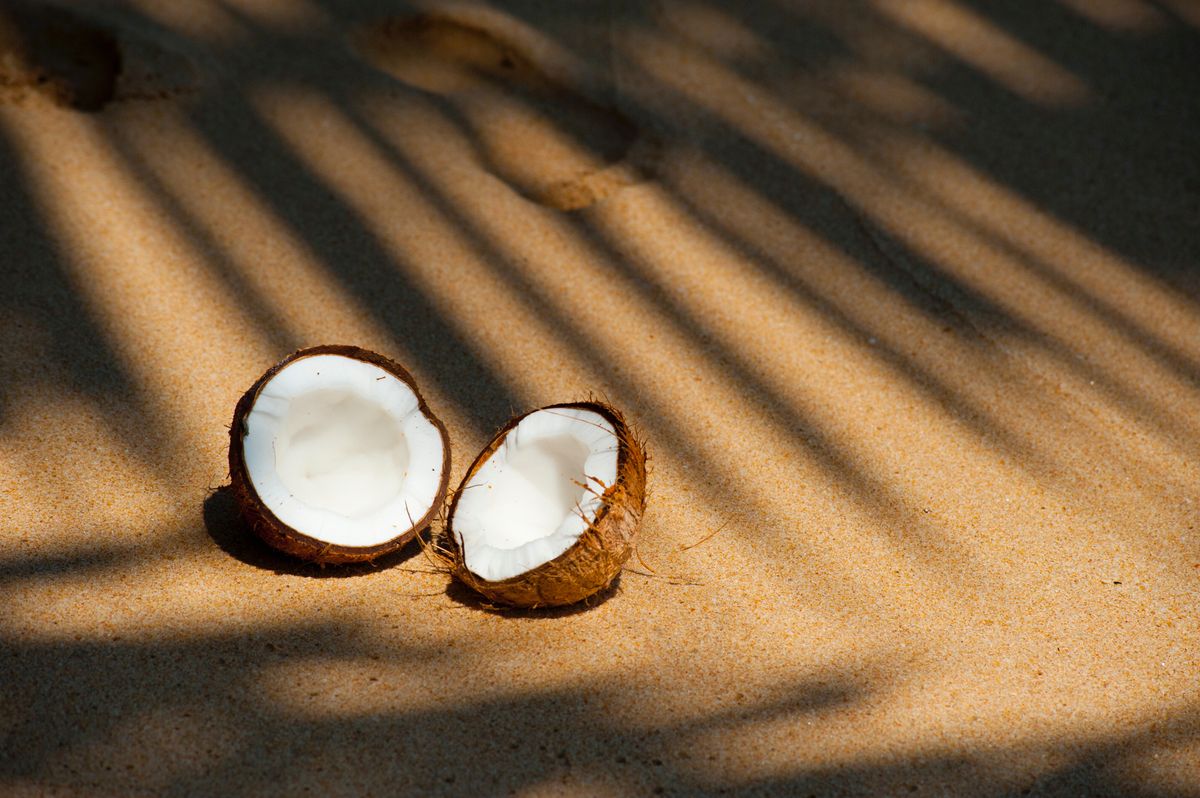
Coconuts are high in naturally occurring saturated fat from medium chain fatty acids (MCFAs) such as lauric acid. Lauric acid is converted in the body into monolaurin, a beneficial compound that destroys a wide variety of organisms that cause disease. It is used to fight common colds and viral infections, such as the flu.
Information that is finally making its way into the mainstream media is that type 2 diabetes is a lifestyle and diet issue that can be reversed without drugs. This information has been known for years, however, among those in the alternative health crowd.
Population studies of societies that consume much of their calories from the saturated fats of coconut oil show that diabetes is very rare. A study done in India in 1998 (1) showed that when Indians abandoned traditional fats like ghee and coconut oil, and started using polyunsaturated fats like sunflower or safflower oils, that the rates of diabetes became alarmingly high. Studies carried out in many South Pacific Island countries have revealed the same thing: when the traditional diet high in coconut oil is abandoned in favor of more modern foods that are highly processed, including polyunsaturated vegetable oils, there is a direct increase in the rate of diabetes and other western diseases.
A study done in 2009 (2) at the Garvan Institute of Medical Research in Australia by Dr. Nigel Turner and Associate Professor Jiming Ye demonstrated that a diet rich in coconut oil protects against ‘insulin resistance’ (an impaired ability of cells to respond to insulin) in muscle and fat. A diet rich in coconut oil, which is high in medium chain fatty acids, also avoids the accumulation of body fat caused by other high fat diets of longer chain fatty acids of similar calorie content. These findings are important because obesity and insulin resistance are major factors leading to the development of Type 2 diabetes.
A study was conducted in 2010 (3) “to study the effect of saturated fatty acid (SFA)-rich dietary vegetable oils on the lipid profile, endogenous antioxidant enzymes and glucose tolerance in type 2 diabetic rats.” The study concluded: “The type of fatty acid in the dietary oil determines its deleterious or beneficial effects. Lauric acid present in coconut oil may protect against diabetes-induced dyslipidemia.”
Pick up a bottle of Medella Coconut Cooking Oil and experience the difference for yourself!
References
- Sircar S, Kansra U. “Choice of cooking oils–myths and realities.” Journal Indian Medical Association. 1998 Oct;96(10):304-7.
- Kochikuzhyil BM, Devi K, Fattepur SR. “Effect of saturated fatty acid-rich dietary vegetable oils on lipid profile, antioxidant enzymes and glucose tolerance in diabetic rats.” Indian J Pharmacol. 2010 Jun;42(3):142-5.
- Enhancement of muscle mitochondrial oxidative capacity and alterations in insulin action are lipid species dependent: potent tissue-specific effects of medium-chain fatty acids. Diabetes. 2009 Nov;58(11):2547-54.




